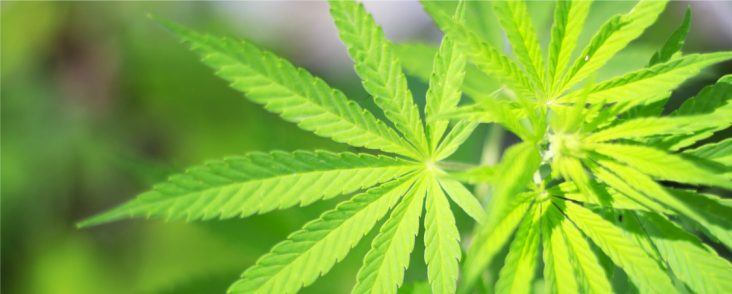Report says medical pot for children has limited use but needs more study
by October 24, 2017 6:05 pm 340 views

As the number of approved medical marijuana patient applications in Arkansas nears 2,000, a new medical journal report released Monday (Oct. 23) says cannabis use may have some medical benefits for young patients needing relief for chemotherapy-induced sickness, but offers little benefit for treatment of other adolescent ailments.
The new study by the American Academy of Pediatrics (AAP), which has opposed the legalization of medical marijuana in the U.S., is causing a predictable stir in Arkansas’ medical marijuana community as the Natural State inches closer to joining 28 other states with legal cannabis for patient use.
According to the newly published AAP report, medical cannabinoids may benefit children undergoing chemotherapy and those who have epilepsy, but researchers Shane Shucheng Wong and Timothy Wilens emphasized the need to weigh the risks and benefits of the drug and called for more research on pediatric use.
“In this context, pediatricians, families, patients and policy makers continue to lack urgently needed information to make balanced decisions regarding the use of medical cannabinoids in children and adolescents,” Wong and Wilens wrote in the “Medical Cannabinoids in Children and Adolescents: A Systematic Review” study.
The AAP study identified 2,743 citations and reviewed 103 full text to identify the evidence base of cannabinoids as a medical treatment in children and adolescents. Researchers identified 21 articles that met inclusion criteria, including 22 relevant studies on the medical benefits of cannabinoids for young patients, six studies on the impact it has on chemotherapy-induced nausea and vomiting and 11 studies on epilepsy.
Evidence for benefit was strongest for chemotherapy-induced nausea and vomiting, with increasing evidence of benefit for epilepsy. However, there is insufficient evidence to support use for spasticity, neuropathic pain, posttraumatic stress disorder, and Tourette syndrome, the report said.
“Additional research is needed to evaluate the potential role of medical cannabinoids in children and adolescents, especially given increasing accessibility from state legalization and potential psychiatric and neurocognitive adverse effects identified from studies of recreational cannabis use,” concluded the report, which was accepted by AAP on Aug. 3.
The Elk Grove, Illinois-based trade group represents 66,000 primary care pediatricians, pediatric medical subspecialists and pediatric surgical specialists.
But some critics of Tuesday’s study point to AAP’s policy statement from January 2015, where the group affirmed its opposition to legalizing marijuana, citing the potential harms to children and adolescents.
“We know marijuana can be very harmful to adolescent health and development,” said Dr. Seth Ammerman, a member of the AAP Committee on Substance Abuse and an author of the policy statement. “Making it more available to adults – even if restrictions are in place – will increase the access for teens. Just the campaigns to legalize marijuana can have the effect of persuading adolescents that marijuana is not dangerous, which can have a devastating impact on their lifelong health and development.”
Still, other medical marijuana advocates are actively pushing the message of “cannabis healing to the masses,” said Rayn Tracy, CEO of CannaKids. Tracy’s business, which promotes a specialty line of cannabis oil products for pediatric use, is also part of a new Beverly Hills, Calif.-based partnership that is set to launch a new venture early next year called 420TV, a premium cannabis news, entertainment and lifestyle channel.
“After my husband and I watched our own daughter find so much success with cannabinoid therapy, we knew other parents like us needed to know the truth about this plant,” Tracy said in a statement.
According to AAP data, there are now 17 states that allow the use of cannabis oil to treat seizures in children. Arkansas is not one of those states, but state lawmakers during the 2017 legislative session included several measures to protect children from the impact of the expected increase pot use in Arkansas, ranging from rules on pot use by sick children to new state laws prohibiting cannabis-related business or pot use by patients near a licensed day or similar social service care facility.
Concerning the use of medical cannabis to treat Arkansas children, the Arkansas Health Department (ADH) cannot issue a registry ID card to any medical patient under 18 years old, unless a parent or legal guardian consents in writing to assist and control the acquisition of the pot, the dosage and frequency of use by a child. The parent or legal guardian must also register with ADH as a designated caregiver for the underaged patient.
Arkansas patients who receive a medical marijuana ID card, including children, must have one of the 18 medical conditions under the Arkansas Medical Marijuana Act of 2017, including cancer, Lou Gehrig’s disease, HIV/AIDS, glaucoma, hepatitis C, Crohn’s disease, ulcerative colitis, PTSD, severe arthritis, Alzheimer’s, and other conditions that produce chronic pain.
Last week, the state Medical Marijuana Commission (AMMC) pushed back the timetable for review and approval of more than 327 applications to land the state’s first licenses for pot-growing cultivation facilities and dispensaries. State policymakers are still untangling new rules promulgated by 24 new bills pass during the 2017 legislation session to regulate the untried fledging cannabis industry that some industry experts predict will general nearly $70 million in sales by 2025.
The deadline to submit applications – to be considered as one the pioneer operators for one of the five marijuana growing centers, or one of 32 applicants to run up to 40 retail locations in four quadrants of the state – was Sept. 18. However, ADH is continuing to accept applications for registry ID cards allowing citizens to obtain Arkansas-grown, doctor-prescribed pot and other cannabis-related medical products.
To date, ADH has approved 1,959 applications with another 178 requests in-process, according to department spokeswoman Meg Mirivel. Actual ID cards will not be provided to patients until a month before product is available, she said.
